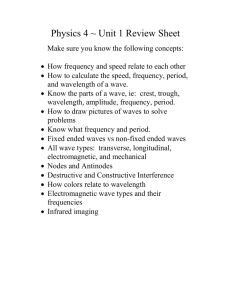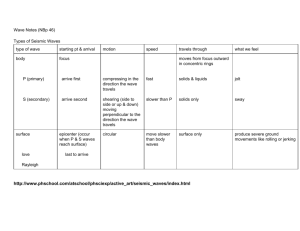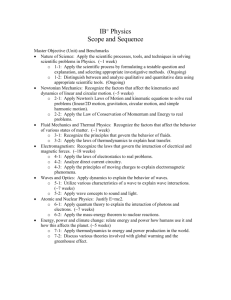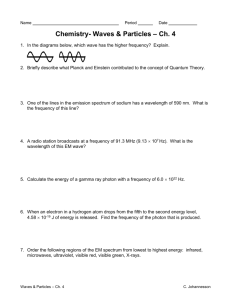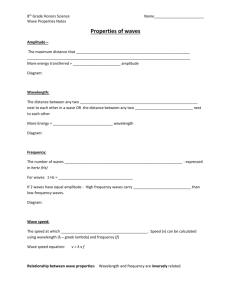Waves - Madison Public Schools
advertisement
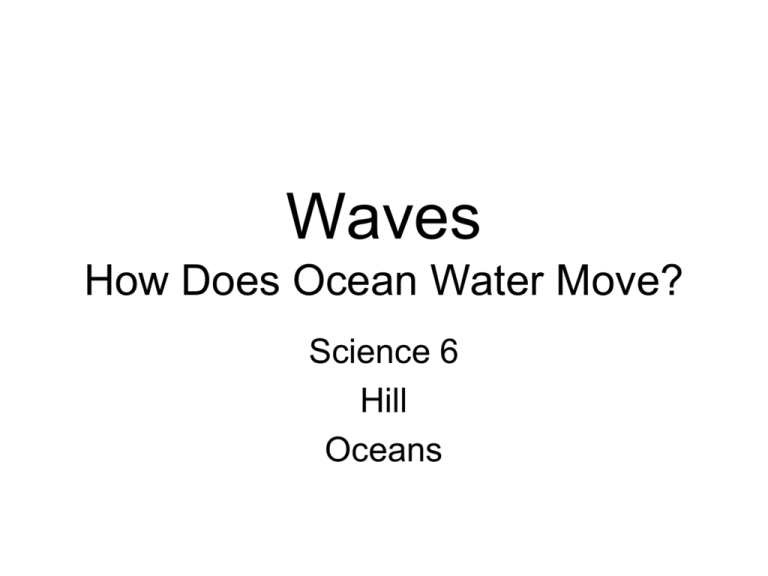
Waves How Does Ocean Water Move? Science 6 Hill Oceans Question: • How does ocean water move? – Waves, currents, tides, water cycle Waves • A wave is a rhythmic movement that carries energy through matter or space. • All waves have the same main parts. Waves • The highest part of a wave is the crest. • The lowest part of a wave is the trough. Parts of Ocean Waves Wavelength • The distance from the crest of one wave to the crest of the wave next to it is called wavelength. Wave Height • Wave height is the vertical distance from the trough to the crest. Questions • What is the highest part of the wave called? • What is the lowest part of the wave called? • How is wave length measured? • How is wave height measured? Waves • Most ocean waves are caused by wind that blows across the surface of the water. • Friction between the wind and water transfers energy from the wind to the water. Waves Waves • The longer and harder the wind blows and the greater the distance over which it blows, the higher the waves become….. nd harder the wind blows and the greater the distance over which it blows, the higher the w Wave Movement • The ENERGY of the wave travels forward…. • But the water particles do not! • The water particles move in a circular pattern as they are temporarily displaced by the energy of the wave. Ocean Waves © 2002 Brooks/Cole, a division of Thomson Learning, Inc. Transfer of Energy • A wave is really a transfer of energy from one water molecule to the next. • If all the water itself moved forward all the oceans would empty onto the shore!!!!! Why Do Waves Break? • Waves break when they approach shallow water. The sea floor rises and slows the bottom of the water, but the top keeps going. The top falls over as gravity pulls it. Breakers • The bottom of the wave is slowed down by friction with the ocean floor. • The top of the wave is still moving forward, traveling faster than the bottom. • The momentum of the wave causes the top to move past the bottom part of the wave. • When this happens the wave topples over on itself, forming a breaker. Wind Waves Approaching Shore What happens when wind waves break against the shore? © 2002 Brooks/Cole, a division of Thomson Learning, Inc. Breaking Waves • In general waves break when the depth of the water is a little greater than the height of the wave. • A wave 30 cm high will break in 40 cm water. Questions • What causes most waves? • What is a wave? • How do the water molecules move in a wave? • What causes a breaker?

